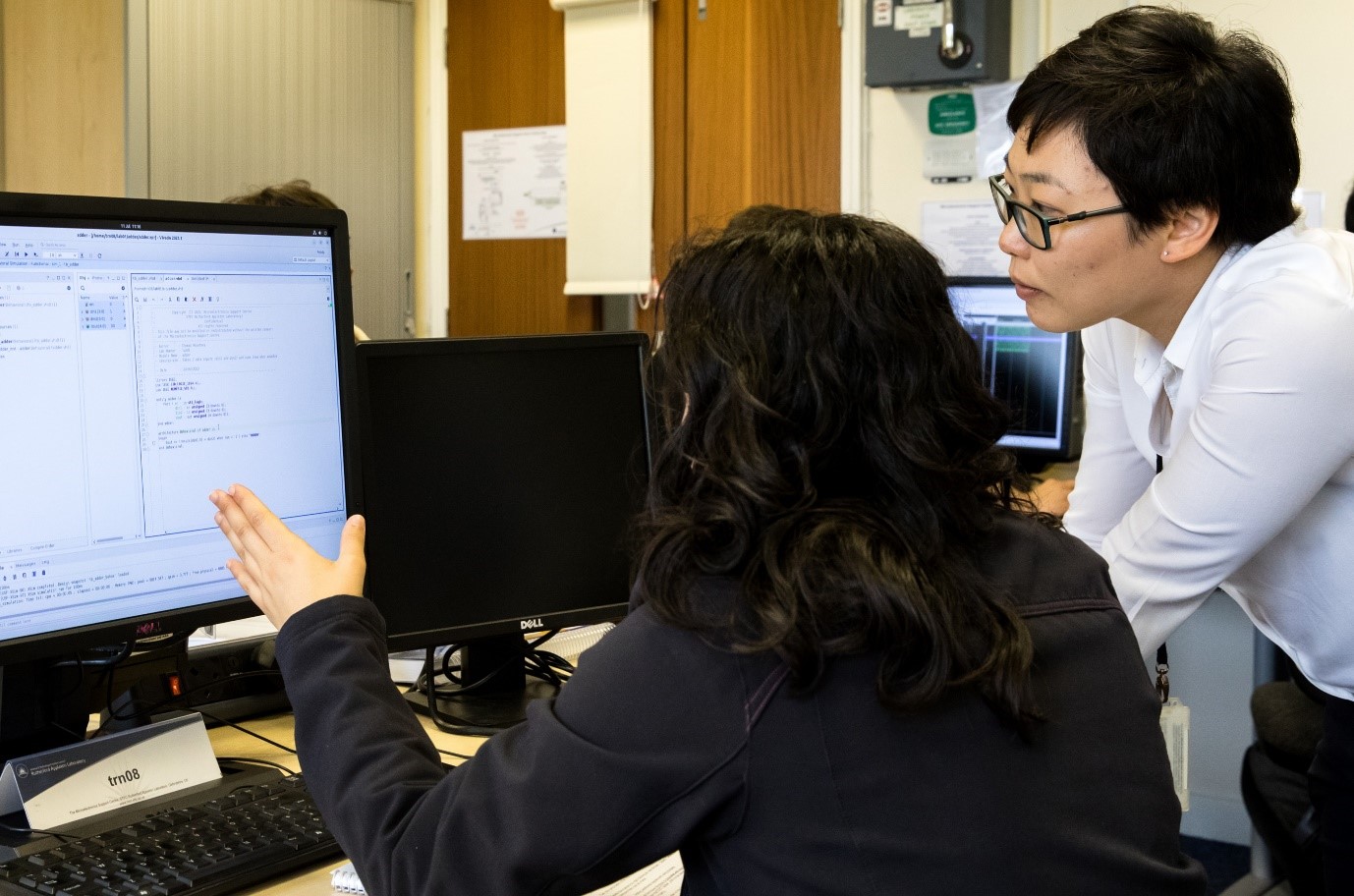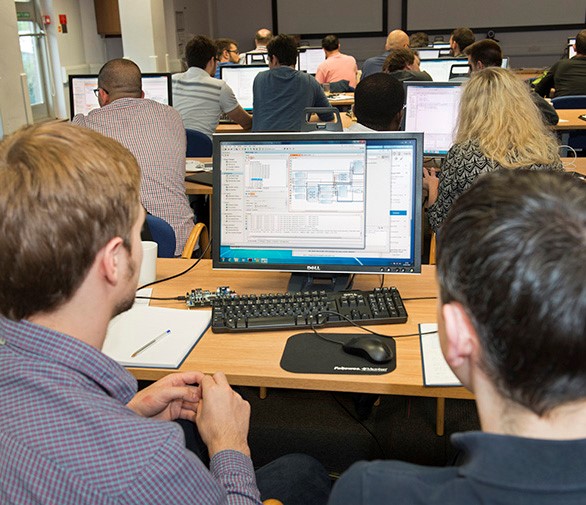 Course attendees are free to ask questions and lecturers are available to assist. The majority of courses are structured to provide training on the full design flow, using industry-standard Electronic Design Automation (EDA) tools, taking users through every step of converting their chip ideas into functioning ICs. Specialised courses on focused topics like Photonic IC design and complex IC Verification are also available. The up-skilling and re-skilling training courses that the Microelectronics Support Centre delivers help to greatly enable the high quality of innovative chip design and academic research that the UK and Europe have come to be known for.
Course attendees are free to ask questions and lecturers are available to assist. The majority of courses are structured to provide training on the full design flow, using industry-standard Electronic Design Automation (EDA) tools, taking users through every step of converting their chip ideas into functioning ICs. Specialised courses on focused topics like Photonic IC design and complex IC Verification are also available. The up-skilling and re-skilling training courses that the Microelectronics Support Centre delivers help to greatly enable the high quality of innovative chip design and academic research that the UK and Europe have come to be known for.
Training is offered either in-person at the dedicated microelectronics training facility at RAL or remotely as live instructor-led courses over Zoom. In either case, training time is split between lectures presented by our expert staff and hands-on experience using the tools in practical exercises. Course attendees are free to ask questions at any point and the lecturers will be around to assist. Multiple training courses run throughout the year, these courses support a range of design flows and technologies available through EUROPRACTICE, so that users can be provided with specialised training for their work. Between courses, the training material is constantly updated so that attendees are always taught the most up-to-date knowledge possible.
 We provide training and support to lecturers, post-doc researchers, engineers, and PhD students. For more than a decade, an intensive schedule of courses has been delivered to lecturers, post-doc researchers, engineers and PhD students. In the last year alone, 26 courses provided training to over 300 delegates including STFC staff and others from over 100 different academic institutes from the UK and 20 other European countries. Typically, approaching 50% of attendees to each course are PhD students, many of whom will undertake novel research or go on to be future industry leaders in the critical semiconductor sector.
We provide training and support to lecturers, post-doc researchers, engineers, and PhD students. For more than a decade, an intensive schedule of courses has been delivered to lecturers, post-doc researchers, engineers and PhD students. In the last year alone, 26 courses provided training to over 300 delegates including STFC staff and others from over 100 different academic institutes from the UK and 20 other European countries. Typically, approaching 50% of attendees to each course are PhD students, many of whom will undertake novel research or go on to be future industry leaders in the critical semiconductor sector.
To view the full list of courses available and to book your place on the next one please visit the
EUROPRACTICE website.
Written by Josh Upton, a Microelectronics Support Centre team member.
